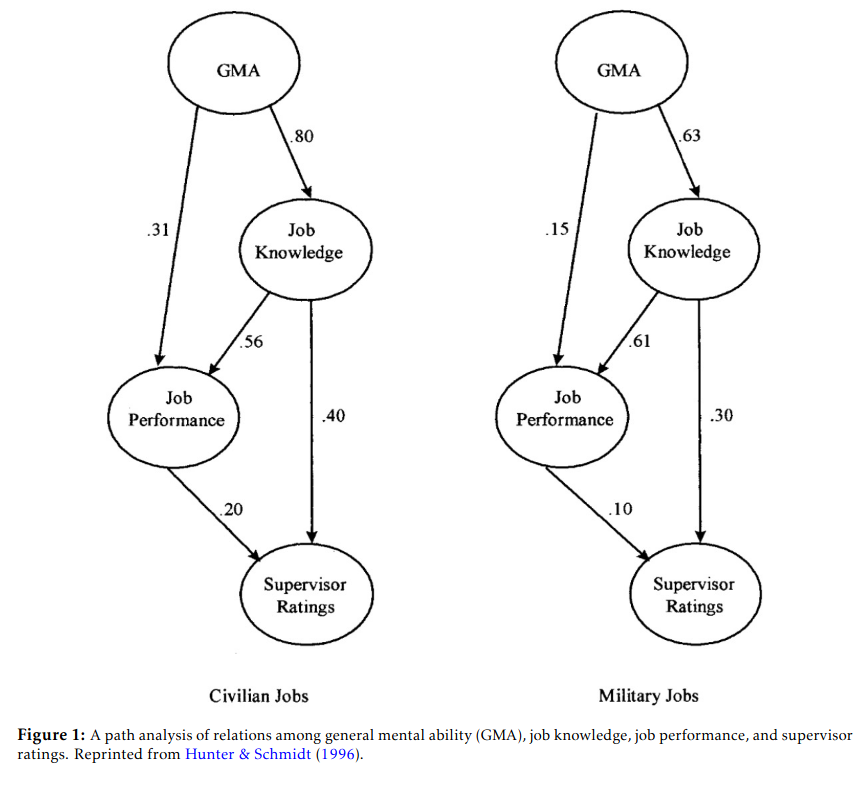- Zimmer, P., & Kirkegaard, E. O. W. (2023). Intelligence Really Does Predict Job Performance: A Long-Needed Reply to Richardson and Norgate. OpenPsych. https://doi.org/10.26775/op.2023.02.12
One commonly studied aspect of the importance of IQ is its validity in predicting job performance. Previous research on this subject has yielded impressive results, regularly finding operational validities for general mental ability exceeding 0.50. In 2015, Ken Richardson and Sarah Norgate criticized the research on the relationship between IQ and job performance, reducing it to virtually nothing. Their assessment of this topic has enjoyed little criticism since its publication despite the crux of their arguments being undermined by readily available empirical evidence and thirty years of replication of the contrary. This article replies to their main criticisms, including the construct validity of IQ tests and supervisory ratings, the validity of the Hunter-Schmidt meta-analytic methods, and possible psychological confounders.
Few people seriously try to disprove that intelligence is causal for job performance. But Ken Richardson and Sarah Norgate had a try at this in 2015. Their goal is to attack the usual I/O psychology by Hunter and Schmidt’s school of thought. Both Hunter and Schmidt are now dead, so they can’t reply. So who is going to reply? The article has somewhat a niche popularity in the online socialist movement. Their counter-thesis would be something like that intelligence is a proxy for social class of origin, which is what job raters use to rate job performance. A typical sociologist theory of why society is really unfair despite seeming meritocratic. We go into a lot of detail about these objections. For instance, there’s a number of jobs where there are objective job performance ratings, e.g. military proficiency tests such as marksmanship, physical tests, and other jobs like sales, or patent clerks getting overruled. These objective data show the same pattern as the supervisor ratings, ruling out their proposed model. One can also just compare education and intelligence as predictors, which shows that education has little validity beyond intelligence. Intelligence itself is mostly causal through job knowledge.
So, for those interested in 18 pages of detailed rebuttal, here you go!
